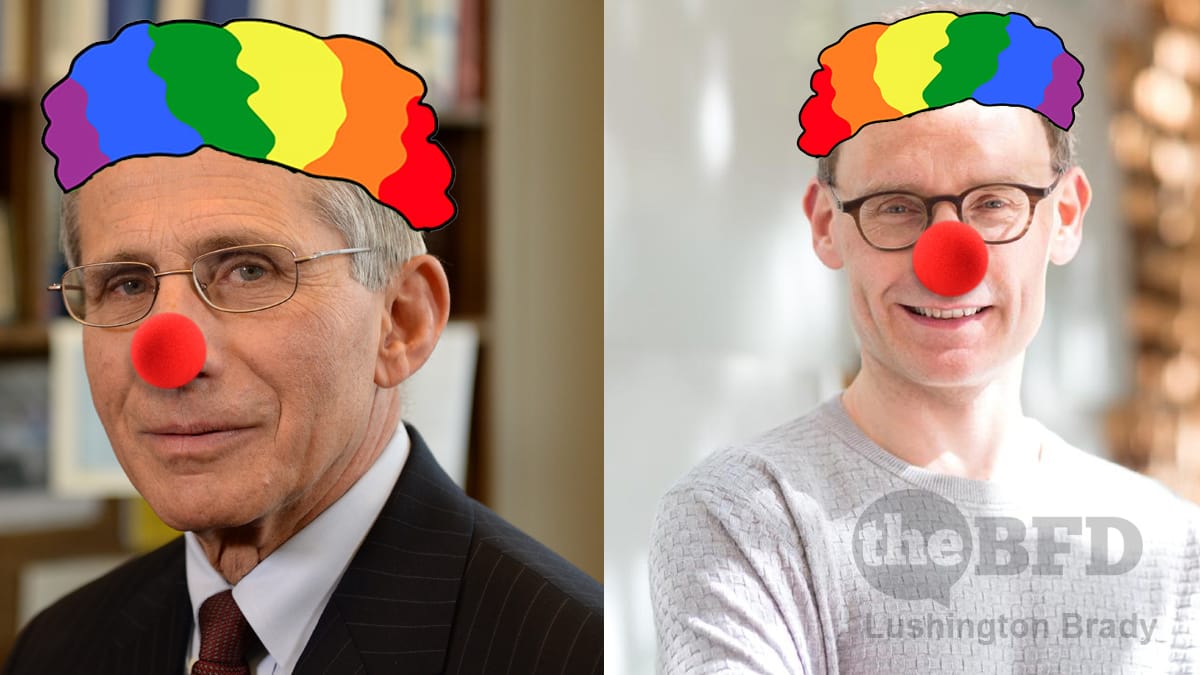Table of Contents
We live in an age of the Tyranny of Experts. Which is, of course, something the elite have wanted ever since Plato declared that the hoi polloi were too stupid to be allowed to meddle in the business of government and that the state should instead be ruled by a specially-bred and selected expert class. But the conceit has really come into its own in the Covid era. Bypassing the bothersome fiction of democracy entirely, unelected state bureaucrats have taken it upon themselves to rule who can work and when, whether adults and children are allowed to go outside, and even what medical procedures we can decline or be forcibly subjected to.
But the problem with this Tyranny of Experts is that the experts have been so consistently wrong about nearly everything. Not just public health, but economics and geopolitics.
The decade beginning in 2020 appears to have taken institutional wrongness to a higher plane. Economists, even after the embarrassment of calling inflation “transitory” for most of last year, are still at it; they wrote a public letter in September last year playing down concerns about inflation and encouraging Joe Biden to press ahead with his $US3.5 trillion Build Back Better package. But with inflation at almost 9 per cent in the US, supporters of the package have gone strangely quiet in recent months.
In 1999, a chimpanzee named Raven outperformed thousands of professional stockbrokers simply by throwing darts at a board. So much for the economists, then.
Foreign policy experts aren’t much better. One study found that just your well-read Average Joe who keeps up with the news is about as on the ball with geopolitics as “experts” and “think tanks”. Sure enough, the foreign policy mavens have been completely wrong-footed over Russia. Against every confident prediction of the “security and intelligence experts”, Russia is steadily winning the war and Vladimir Putin shows no sign of dying just yet.
They fired a bazooka at their own feet, doing nothing to avert the war while crushing the competitiveness of European industry and slashing the living standards of ordinary Americans and Europeans. Goodbye German car industry, on current trends.
It’s worse, though. In late March Biden, under the advice of experts no doubt, said Russia’s currency would be turned to “rubble” by sanctions. This week the rouble reached a seven-year high against the US dollar, becoming the best performing currency in the world this year.
Interest rates on Russian 10-year government bonds, at about 9 per cent, are one percentage point lower than they were before the war. The Russian central bank is cutting interest rates as the Fed lifts them.
The biggest boost to Russia’s economy is soaring energy prices — again, thanks to “experts”.
Then there’s the climate change and energy experts who have been telling us for years a rising share of solar and wind power in national grids would cause prices to decline, when the two nations furthest down that path – Germany and Denmark – have the most expensive power in Europe.
Batteries would continue to get cheaper, the experts told us, seemingly oblivious of the impact an immense increase in mandated demand for electric cars and giant lithium batteries would have on the price of the critical minerals they require. Not very smart.
But the wooden spoon for expert dunderheadedness surely has to go to the public health troughacracy.
Three weeks to flatten the curve turned into almost 850 days of chaotic, arbitrary restrictions that appeared to do very little in the end to stop the spread of Covid-19, let alone pass any sort of rational cost-benefit assessment.
Cloth masks worked, then they didn’t; vaccines protected against infection, then they didn’t. Two doses were enough, then three, then four. The virus emerged zoonotically for certain, then it didn’t.
“Experts say”, “experts warn” has become something of a joke. It’s not surprising that less than a fifth of American parents, for instance, intend to vaccinate their toddlers against Covid-19, according to a recent Kaiser Foundation survey, even though experts are recommending it urgently.
Does this mean that expertise is necessarily useless? Of course not. Want to wire a house or rebuild a car? Most of the time you’ll trust it to an expert: a sparky or a mechanic.
But here’s the kicker: they’re responsible for proving their expertise, or they’ll go broke. A public health bureaucrat or foreign policy advisor suffers no such consequence for being wrong. Look at Professor Wrongo McWrongson, Neil Ferguson: wrong, every single time, yet there he is, still bobbing around at the top of the punchbowl.

The fact is that most of the “experts” the media-political class present us with, simply aren’t. They’re actually second and third-raters, whose only genuine expertise is toadying to the powerful and loudly echoing what they want to hear.









